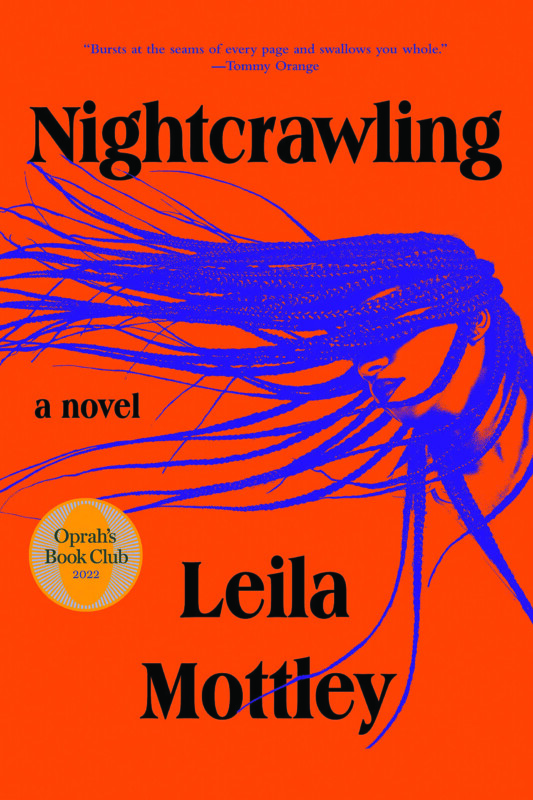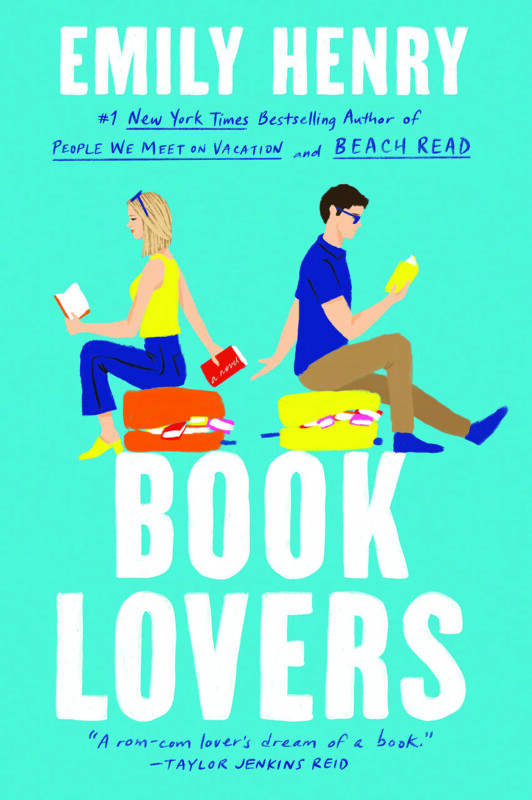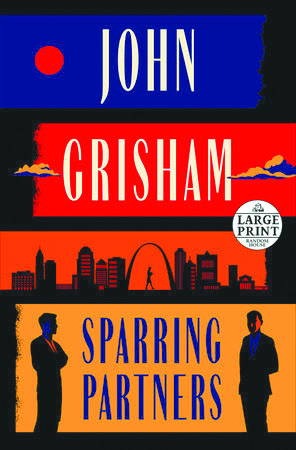Nightcrawling, by Leila Mottley (Knopf, 271 pages)
Promising young writers don’t always live up to their potential; they can collapse under the combined weight of heavy expectations and featherweight talent. In the interest of kindness, let’s not name names.
Not so Leila Mottley, the young novelist that Oprah Winfrey has been gushing about. Mottley started writing Nightcrawling at 17; she’s now 20. Her novel is all Winfrey promised it would be, and then some.
It’s based on actual events in Oakland, California: the sexual abuse of a young Black woman by police officers who trapped her into serving an ever expanding number of officers sexually. Mottley, who lives in Oakland, read about the case and the ensuing cover-up and couldn’t stop thinking about the young woman and the experience of growing up “vulnerable, unprotected and unseen.”
From her imagination came Kiara, a 17-year-old in similar circumstances. Kiara and her older brother, Marcus, live in a run-down apartment complex where the pool is contaminated with feces. “Houses give away all their secrets at the door. Dee’s is full of scratches. Mine doesn’t even have a working lock no more,” Kiara muses in the first-person narrative which is both lyrical and devastating.
Their father is dead; their mother long gone and currently living in a halfway house. Their only other family member is an uncle who is something of a rap star in L.A. and has no contact with them.
Kiara carries the weight of their meager existence, since her brother spends his days recording rap music in hopes of hitting it big like his uncle. When the apartment complex is sold and they receive notice that the rent has been doubled, she is desperate, not only for herself and her brother, but also for Trevor, the young boy in an adjacent apartment whom she has been caring for in the absence of his mother.
She tries to find work, but without a work history, she is repeatedly turned away. Even the third-rate bars to which she applies won’t hire her until she turns 18.
One night, she has a sexual encounter that is more of a business transaction than romance, and the shock of receiving several hundred dollars for sex leads Kiara into selling her body more frequently. One night, she’s picked up by a couple of police officers who, in exchange for not arresting her, take advantage of her services. They soon begin calling her regularly and sharing her with other officers, to the point of her being the “entertainment” at police parties.
Although Kiara does not know the officers by name, she knows them by their badge numbers, and they indulge in her services so much that she knows their preferences and habits; she is paid both in money and also in a shabby form of protection. For example, once, when she is at a party, she gets a call from an officer who tells her that there are undercover officers in the house and there’s about to be a bust. An officer picks her up, preventing her arrest, but his “protection” involves taking her to his home for the night and sexual activities for which she is not paid.
One day, police come to her home and take Kiara to the station for questioning. The administration has learned of Kiara’s existence and abuse through a suicide note left by a member of the force. Kiara denies any involvement with officers and is released, but from there, must confront more dilemmas that a teenager should never have to face.
She has choices, but they’re all terrible. She feels she can trust no one; the institution that is supposed to protect her is corrupt. Her brother — who loves her so much that he had her fingerprint tattooed on his neck, who pierced her ears with a sewing needle as a gift for her 16th birthday — is in jail. And Kiara is unable to pay the rent and buy food without the money she receives from sexual encounters with the police.
While Kiara’s experiences and life, even before she descended into sex work, are foreign to much of America, they will be painfully familiar to many.
Mottley clearly knows something about the humiliation of poverty: of having nothing but cereal and ramen in a roach-infested pantry; of having to share a washing machine with someone else at the laundromat; of making your own birthday cake from a mix using syrup because you don’t have any oil; of never having slept in a real bed, or been invited to anyone’s house because your daily existence is limited to staying alive.
In one moving scene, Kiara remembers going grocery shopping with her mother, before she disappeared. While her mother is trying to figure out how much credit was left on their EBT card, how much they could spend, young Kiara wistfully fills a carriage with frozen pizza and “fancy” cereal — things that, to her mind, were luxuries only rich people can afford.
“I don’t think you can feel more trapped than in the center of food you’re not allowed to eat, waiting to go home, and not knowing if anyone will remember your existence,” Kiara says.
While Nightcrawling takes us into a deeply depressing underworld of shame, despair and corruption, it is still a pleasure to read. Mottley’s voice is true and compelling, and she endows Kiara with unsettling wisdom that gives us hope that she will survive and move (both literally and figuratively) to a better place, with Marcus and Trevor in tow. A
Book Notes
It’s hard to believe it’s been nearly a year since the disappearance of Gabby Petito, the young woman traveling across the country in a van with her boyfriend, Brian Laundrie, who the FBI has said claimed responsibility for killing her, according to a January story in the New York Times and other media reports. That case mobilized a nation of armchair investigators. We can all track down murderers now from the comfort of our living room, or at least come up with tips that might prove helpful.
And there are plenty of unsolved cases out there, as Trailed by Kathryn Miles reminds us. Trailed (Algonquin, 320 pages) is the account of two women, Laura “Lollie” Winans and Julie Williams, who were found dead in Shenandoah National Park in Virginia, and Miles’ personal investigation into their deaths. The case remains unsolved, but Miles, a science writer who lives in Portland, has evidently done a masterful job of telling this story; there are lots of “couldn’t put this book down” in reader reviews. The author explores not only the flaws that plagued the investigation, including charges that the National Park Service tries to bury cases like this so people feel safe on its property, but also the unique dangers that confront women and members of the LGBTQ community when in the wilderness.
The “true crime” genre isn’t for everyone, but for those who enjoy it, there are plenty of offerings this summer. Another is When the Moon Turns to Blood(Twelve, 320 pages), journalist Leah Sottile’s account of the Idaho murders allegedly committed by Lori Vallow, a former beauty queen, and her husband Chad Daybell, a doomsday novelist. The couple are accused of killing two children and Daybell’s ex-wife. (The trial is scheduled for January 2023.) The subtitle promises “a story of murder, wild faith and end times.”
Less sensational but equally dark is We Carry Their Bones (William Morrow, 256 pages) by Erin Kimmerle. The author is a forensic anthropologist who examines the crimes committed at the Dozier School in Florida, which operated from 1900 to 2011 despite reports of cruelty, abuse and unexplained deaths of young boys, many of whom were Black. School records show that about 30 boys were buried in a field on the property; Kimmerle found that there were actually twice the number of graves.
And finally, those who enjoy true crime will appreciate Unmasked: My Life Solving America’s Cold Cases (Celadon, 288 pages) by Paul Holes. Hole is the forensic detective whose obsession with the case of the Golden State Killer led to a former police officer’s arrest for 13 murders and 50 rapes in California between 1974 and 1986.
Book Events
Author events
• DIANE HALLENBECK presents Rejecting Fear: Learning to Be Led By Loveat the Bookery (844 Elm St., Manchester, bookerymht.com, 836-6600) on Thursday, July 28, from 5:30 to 6:30 p.m. Free event; register at www.bookerymht.com/our-events.
• MARY ELLEN HUMPHREY presents My Mountain Friend: Wandering and Pondering Mt. Majorat Gibson’s Bookstore (45 S. Main St., Concord, 224-0562, gibsonsbookstore.com) on Thursday, July 28, at 6:30 p.m.
• LAURIE STONE presents Streaming Now: Postcards from the Thing That Is Happeningat Gibson’s Bookstore (45 S. Main St., Concord, 224-0562, gibsonsbookstore.com) on Thursday, Aug. 4, at 6:30 p.m.
• KATHLEEN BAILEY and SHEILA BAILEY present their book New Hampshire War Monuments: The Stories Behind the Stones at Gibson’s Bookstore (45 S. Main St., Concord, 224-0562, gibsonsbookstore.com) on Thursday, Aug. 11, at 6:30 p.m.
• R.A. SALVATORE presents Glacier’s Edge at Gibson’s Bookstore (45 S. Main St., Concord, 224-0562, gibsonsbookstore.com) on Friday, Aug. 12, at 6:30 p.m.
• CASEY SHERMAN presents Helltown at the Bookery (844 Elm St., Manchester, bookerymht.com, 836-6600) on Sunday, Aug. 14, at 1:30 p.m. Free event; register at www.bookerymht.com/our-events.
• VIRGINA CHAMLEE presents Big Thrift Energy: The Art and Thrill of Finding Vintage Treasuresat Gibson’s Bookstore (45 S. Main St., Concord, 224-0562, gibsonsbookstore.com) on Monday, Aug. 15, at 6:30 p.m.
• SPENCER QUINN presents Bark to the Future: A Chet & Bernie Mysteryat Gibson’s Bookstore (45 S. Main St., Concord, 224-0562, gibsonsbookstore.com) on Thursday, Aug. 18, at 6:30 p.m. and on Sunday, Aug. 28, at noon at the Bookery (844 Elm St., Manchester, bookerymht.com, 836-6600). The Bookery event is BYOD: bring your own dog.
• PHIL PRIMACK presents Put It Down On Paper: The Words and Life of Mary Folsom Blair in a Literary Lunchtime event at Gibson’s Bookstore (45 S. Main St., Concord, 224-0562, gibsonsbookstore.com) on Thursday, Sept. 8, at noon.
Poetry
• OPEN MIC POETRY hosted by the Poetry Society of NH at Gibson’s Bookstore (45 S. Main St., Concord, 224-0562, gibsonsbookstore.com), starting with a reading by poet Sam DeFlitch, on Wednesday, July 20, from 4:30 to 6 p.m. Newcomers encouraged. Free.
• DOWN CELLAR POETRY SALON Poetry event series presented by the Poetry Society of New Hampshire. Monthly. First Sunday. Visit poetrysocietynh.wordpress.com.
Writers groups
• MERRIMACK VALLEY WRITERS’ GROUP All published and unpublished local writers who are interested in sharing their work with other writers and giving and receiving constructive feedback are invited to join. The group meets regularly Email [email protected].
Book Clubs
• BOOKERY Monthly. Third Thursday, 6 p.m. 844 Elm St., Manchester. Visit bookerymht.com/online-book-club or call 836-6600.
• GIBSON’S BOOKSTORE Online, via Zoom. Monthly. First Monday, 5:30 p.m. Bookstore based in Concord. Visit gibsonsbookstore.com/gibsons-book-club-2020-2021 or call 224-0562.
• TO SHARE BREWING CO. 720 Union St., Manchester. Monthly. Second Thursday, 6 p.m. RSVP required. Visit tosharebrewing.com or call 836-6947.
• GOFFSTOWN PUBLIC LIBRARY 2 High St., Goffstown. Monthly. Third Wednesday, 1:30 p.m. Call 497-2102, email [email protected] or visit goffstownlibrary.com
• BELKNAP MILL Online. Monthly. Last Wednesday, 6 p.m. Based in Laconia. Email [email protected].
• NASHUA PUBLIC LIBRARY Online. Monthly. Second Friday, 3 p.m. Call 589-4611, email [email protected] or visit nashualibrary.org.
Language
• FRENCH LANGUAGE AND LITERATURE CLASSES
Offered remotely by the Franco-American Centre. Six-week session with classes held Thursdays from 6:30 to 8:30 p.m. $225. Visit facnh.com/education or call 623-1093.






